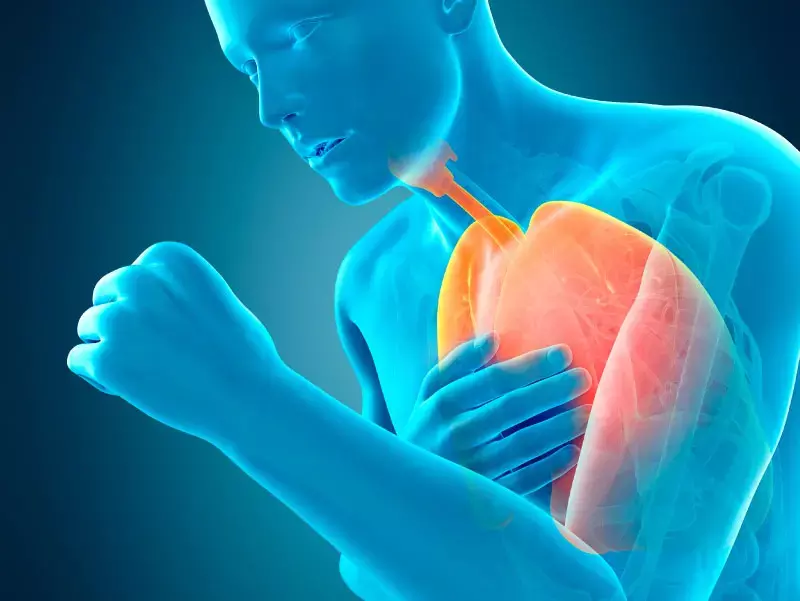- Home
- Medical news & Guidelines
- Anesthesiology
- Cardiology and CTVS
- Critical Care
- Dentistry
- Dermatology
- Diabetes and Endocrinology
- ENT
- Gastroenterology
- Medicine
- Nephrology
- Neurology
- Obstretics-Gynaecology
- Oncology
- Ophthalmology
- Orthopaedics
- Pediatrics-Neonatology
- Psychiatry
- Pulmonology
- Radiology
- Surgery
- Urology
- Laboratory Medicine
- Diet
- Nursing
- Paramedical
- Physiotherapy
- Health news
- Fact Check
- Bone Health Fact Check
- Brain Health Fact Check
- Cancer Related Fact Check
- Child Care Fact Check
- Dental and oral health fact check
- Diabetes and metabolic health fact check
- Diet and Nutrition Fact Check
- Eye and ENT Care Fact Check
- Fitness fact check
- Gut health fact check
- Heart health fact check
- Kidney health fact check
- Medical education fact check
- Men's health fact check
- Respiratory fact check
- Skin and hair care fact check
- Vaccine and Immunization fact check
- Women's health fact check
- AYUSH
- State News
- Andaman and Nicobar Islands
- Andhra Pradesh
- Arunachal Pradesh
- Assam
- Bihar
- Chandigarh
- Chattisgarh
- Dadra and Nagar Haveli
- Daman and Diu
- Delhi
- Goa
- Gujarat
- Haryana
- Himachal Pradesh
- Jammu & Kashmir
- Jharkhand
- Karnataka
- Kerala
- Ladakh
- Lakshadweep
- Madhya Pradesh
- Maharashtra
- Manipur
- Meghalaya
- Mizoram
- Nagaland
- Odisha
- Puducherry
- Punjab
- Rajasthan
- Sikkim
- Tamil Nadu
- Telangana
- Tripura
- Uttar Pradesh
- Uttrakhand
- West Bengal
- Medical Education
- Industry
Hypoxia linked to Neutrophil-mediated endothelial damage in COPD, study reveals

UK: Insights from a recent study in the American Journal of Respiratory and Critical Care Medicine may help to identify new therapeutic opportunities for endothelial damage in chronic obstructive pulmonary disease (COPD).
According to the study, hypoxia drives a destructive "hypersecretory" neutrophil phenotype resulting in enhanced capacity for endothelial damage, with a corresponding signature of vascular injury and neutrophil degranulation identified in the plasma of COPD patients. This implies that hypoxic enhancement of neutrophil degranulation may lead to increased cardiovascular risk in COPD.
COPD patients are reported to be at increased risk of excess cardiovascular morbidity and mortality, and exacerbation worsens the risk. COPD is associated with persistent blood and airway neutrophilia and systemic and tissue hypoxia. Hypoxia augments the release of neutrophil elastase enhancing the capacity for tissue injury. Thus, hypoxic neutrophils have increased potential to cause endothelial injury, but their role in mediating the increased cardiovascular risk in COPD is poorly understood.
To fill the knowledge gap described above, Katharine M. Lodge, National Heart and Lung Institute, Imperial College London, London, United Kingdom, and colleagues aimed to determine whether hypoxia-driven neutrophil protein secretion contributes to endothelial damage in COPD.
For this purpose, the researchers used quantitative mass spectrometry for characterizing the healthy human neutrophil secretome generated under normoxic or hypoxic conditions and an assessment of the capacity for neutrophil-mediated endothelial damage was done.
Histotoxic protein concentrations were measured in normoxic versus hypoxic neutrophil supernatants and plasma from patients experiencing COPD exacerbation and healthy control subjects.
Following were the key findings of the study:
· Hypoxia promoted PI3Kγ-dependent neutrophil elastase secretion, with greater release seen in neutrophils from patients with COPD.
· Supernatants from neutrophils incubated under hypoxia caused pulmonary endothelial cell damage, and identical supernatants from COPD neutrophils increased neutrophil adherence to endothelial cells.
· Proteomics revealed differential neutrophil protein secretion under hypoxia and normoxia, and hypoxia augmented secretion of a subset of histotoxic granule and cytosolic proteins, with significantly greater release seen in COPD neutrophils.
· The plasma of patients with COPD had a higher content of hypoxia-upregulated neutrophil-derived proteins and protease activity and vascular injury markers.
The results show that patients experiencing COPD exacerbation have an enhanced footprint of circulating neutrophil protease activity. And, neutrophils from these patients exhibit a hypoxia-driven hypersecretory phenotype with enhanced capacity for endothelial damage
"We provide the first description of hypoxia's ability to augment the secretion of histotoxic proteins from COPD neutrophils in vitro and have identified a corresponding increase in the plasma concentrations of selected granule proteins and markers of vascular injury in patients with COPD," the authors wrote in their study
"Our findings may illuminate novel therapeutic targets in treatment-recalcitrant neutrophil-mediated inflammatory diseases such as COPD," they concluded.
Reference:
Lodge, K.M., Vassallo, A., Liu, B. et al. (15 more authors) (2022) Hypoxia increases the potential for neutrophil-mediated endothelial damage in COPD. American Journal of Respiratory and Critical Care Medicine. ISSN 1073-449X. https://doi.org/10.1164/rccm.202006-2467oc
Dr Kamal Kant Kohli-MBBS, DTCD- a chest specialist with more than 30 years of practice and a flair for writing clinical articles, Dr Kamal Kant Kohli joined Medical Dialogues as a Chief Editor of Medical News. Besides writing articles, as an editor, he proofreads and verifies all the medical content published on Medical Dialogues including those coming from journals, studies,medical conferences,guidelines etc. Email: drkohli@medicaldialogues.in. Contact no. 011-43720751


